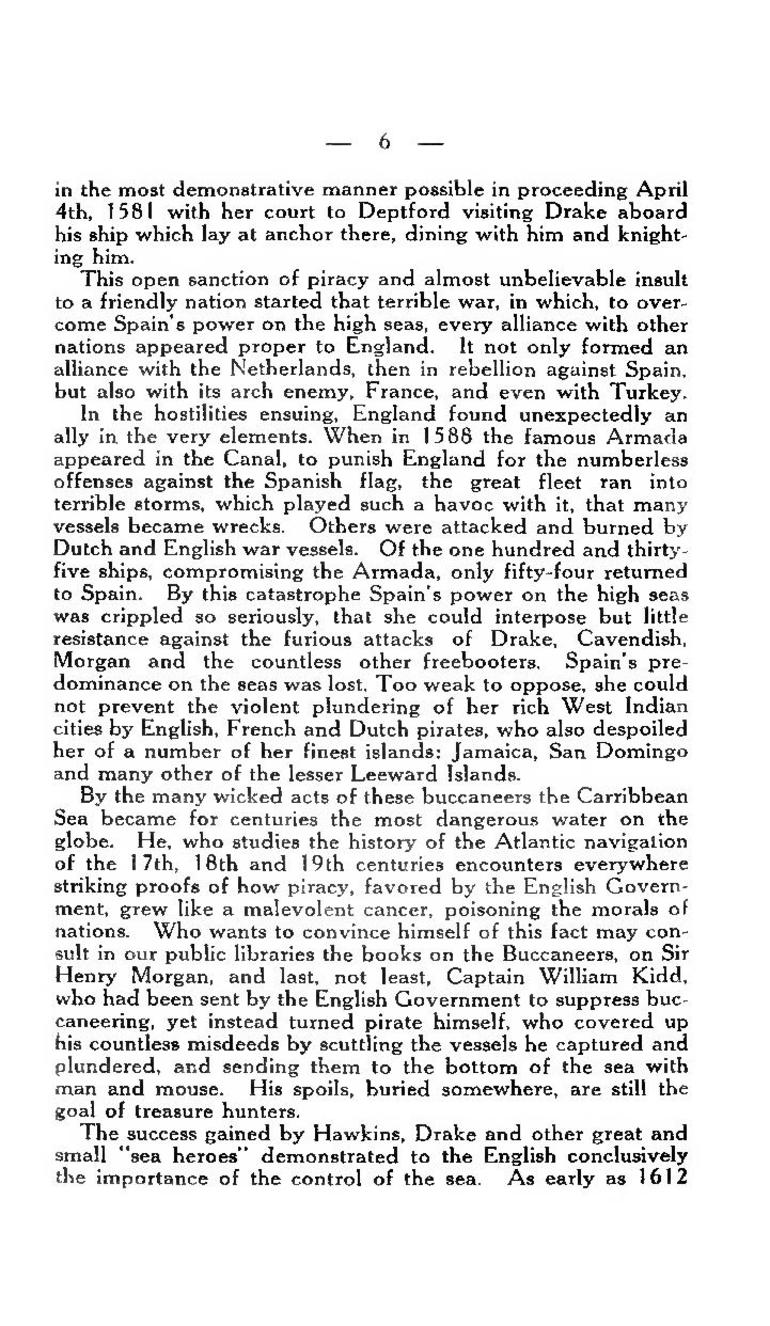— 6 —
in the most demonstrative manner possible in proceeding April 4th, 1581 with her court to Deptford visiting Drake aboard his ship which lay at anchor there, dining with him and knighting him.
This open sanction of piracy and almost unbelievable insult to a friendly nation started that terrible war, in which, to overcome Spain's power on the high seas, every alliance with other nations appeared proper to England. It not only formed an alliance with the Netherlands, then in rebellion against Spain, but also with its arch enemy, France, and even with Turkey.
In the hostilities ensuing, England found unexpectedly an ally in the very elements. When in 1588 the famous Armada appeared in the Canal, to punish England for the numberless offenses against the Spanish flag, the great fleet ran into terrible storms, which played such a havoc with it, that many vessels became wrecks. Others were attacked and burned by Dutch and English war vessels. Of the one hundred and thirty-five ships, compromising the Armada, only fifty-four returned to Spain. By this catastrophe Spain's power on the high seas was crippled so seriously, that she could interpose but little resistance against the furious attacks of Drake, Cavendish, Morgan and the countless other freebooters. Spain's predominance on the seas was lost. Too weak to oppose, she could not prevent the violent plundering of her rich West Indian cities by English, French and Dutch pirates, who also despoiled her of a number of her finest islands: Jamaica, San Domingo and many other of the lesser Leeward Islands.
By the many wicked acts of these buccaneers the Carribbean Sea became for centuries the most dangerous water on the globe. He, who studies the history of the Atlantic navigation of the 17th, 18th and 19th centuries encounters everywhere striking proofs of how piracy, favored by the English Government, grew like a malevolent cancer, poisoning the morals of nations. Who wants to convince himself of this fact may consult in our public libraries the books on the Buccaneers, on Sir Henry Morgan, and last, not least, Captain William Kidd, who had been sent by the English Government to suppress buccaneering, yet instead turned pirate himself, who covered up his countless misdeeds by scuttling the vessels he captured and plundered, and sending them to the bottom of the sea with man and mouse. His spoils, buried somewhere, are still the goal of treasure hunters.
The success gained by Hawkins, Drake and other great and small "sea heroes" demonstrated to the English conclusively the importance of the control of the sea. As early as 1612
